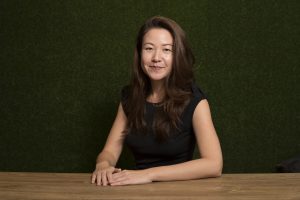Reapra, a Singapore-based venture-builder, is collaborating with Future Females Singapore, a movement that aims to uplift female entrepreneurs, to launch “Build to Last,” the first female-only virtual hackathon in Southeast Asia. The hackathon will be held on September 11–13.
Centered around the theme of business sustainability, “Build to Last” provides a platform for female entrepreneurs to meet like-minded individuals and develop their ideas into profitable businesses. After going through a series of workshops and a guided mentorship, participants will pitch their business ideas. The top three winners will receive coaching from Reapra and Future Females, opportunities to raise up to SGD 100,000 (USD 73,000) in funding from Reapra, and offers for Future Females Global Business School.
To find out more or register, click here
KrASIA spoke with Priscilla Han, chief investment officer at Reapra, about “Build to Last,” female entrepreneurship, and building sustainable businesses.

KrASIA (Kr): Why is Reapra targeting female entrepreneurs specifically?
Priscilla Han (PH): Reapra has been building businesses with founders since 2014, and we have seen the number of female founders or co-founders in our portfolio increase steadily over time. Today, approximately 40% of our portfolio companies are led by female founders or CxOs from across the world. For us, cultural and social diversity is fundamental to developing a strong learning culture and driving creativity in problem solving. As such, we see the potential of encouraging more female founders in Southeast Asia, and seek to do so by collaborating with Future Females [to organize] the “Build to Last” virtual hackathon.
Kr: Reapra has a very strong focus on business sustainability, which we see in both your company strategy as well as “Build to Last.” Why has Reapra chosen to prioritize business sustainability over other aspects?
PH: For Reapra, sustainability is the key overarching concept that guides the way we build businesses—which includes and impacts all other aspects of venture building.
Sustainability is about meeting the needs of the present without compromising the ability of future generations to meet their own needs. In the business context, having a sustainability-driven mindset is critical in counter-balancing the pressure that CEOs and companies have today to drive short-term results at the expense of long-term interests.
This is particularly so for founders or companies who are truly looking to make a positive impact on society. We believe that it requires time—sometimes a very long time—to solve or address complex problems that our world is facing, hence nurturing the ability to balance short-term and long-term goals is a critical factor for us when working together with early-stage founders.
Kr: What advice you have for aspiring entrepreneurs that want to build sustainable business models?
PH: Firstly, understand your field. It is important for founders to understand the relational impact of variables and stakeholders. Problems are usually more complex than they seem. For example, the farm-to-table approach is often seen as a solution to mitigate the inefficiencies of the traditional agriculture sector. However, in simplifying the value chain, founders need to look at the multiple entry points—delivery services, safety and nutrition testing—and understand the dynamics and complexity of each one, in order to venture build from the most advantageous entry point.
As such, experimenting with different business models in very early stages of building the business is recommended, as it creates a good feedback loop for the founder to understand different perspectives of the market. Market dynamics and conditions can be uncertain, and require non-linear or indirect ways of creating solutions. Testing different models (B2B, B2C, offline, online, and so on) can almost give you ‘3D imaging’ of your field or problem statement.
Lastly, don’t scale an unprofitable business. Founders tend to think that scaling their business will resolve or mitigate its initial problems and gaps. However, this usually results in losses being magnified at a similar or greater scale as the business expands. Instead, one way to know if you are really creating value for your customers and the ecosystem is if your customers are willing to pay you fairly for your product or service. If they are not, then it is a signal to refine your value proposition.
Responses have been edited for length and clarity. KrASIA is a media partner of the event.
